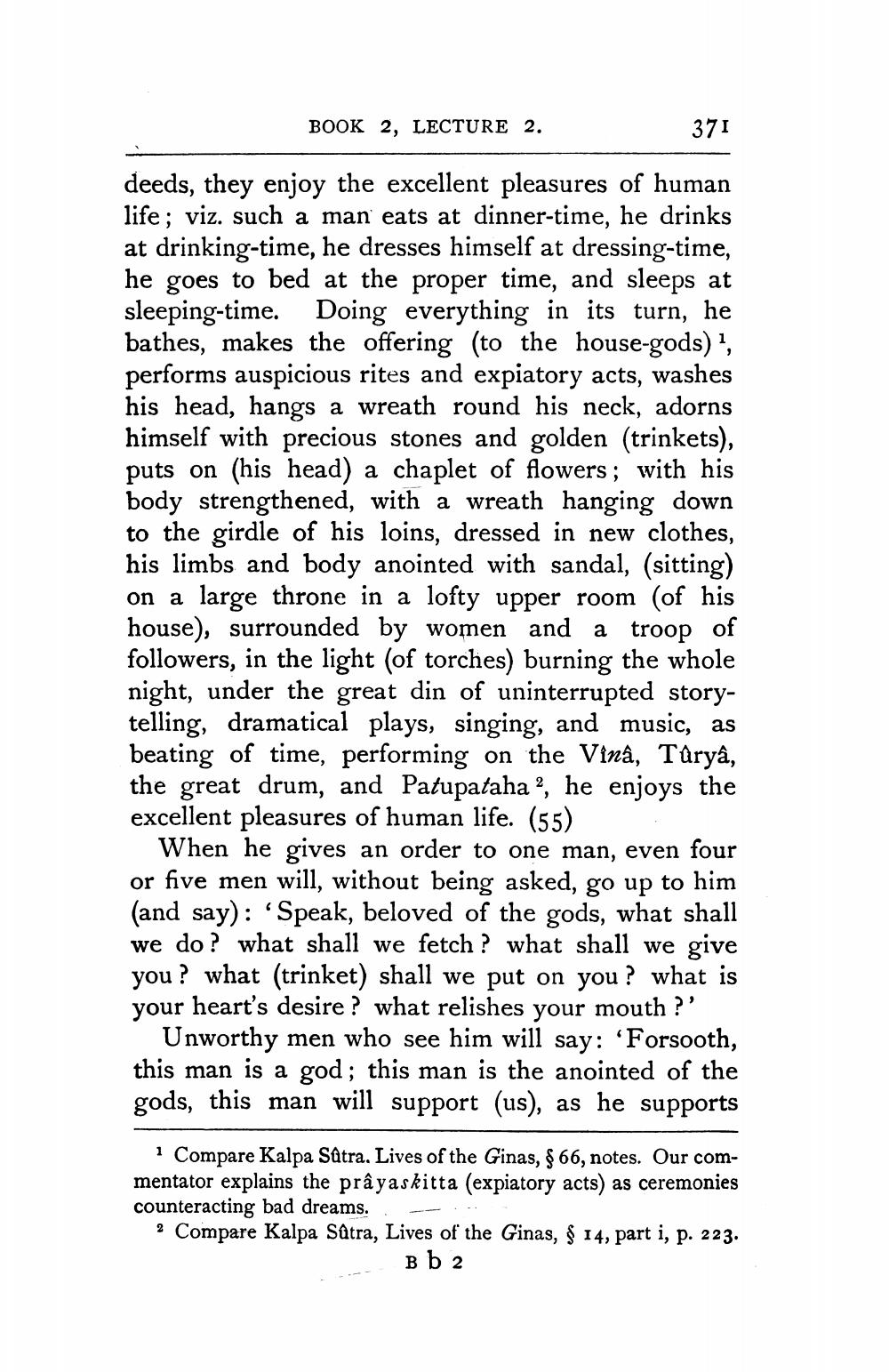________________
BOOK 2, LECTURE 2.
371
deeds, they enjoy the excellent pleasures of human life; viz. such a man eats at dinner-time, he drinks at drinking-time, he dresses himself at dressing-time, he goes to bed at the proper time, and sleeps at sleeping-time. Doing everything in its turn, he bathes, makes the offering (to the house-gods) ?, performs auspicious rites and expiatory acts, washes his head, hangs a wreath round his neck, adorns himself with precious stones and golden (trinkets), puts on (his head) a chaplet of flowers; with his body strengthened, with a wreath hanging down to the girdle of his loins, dressed in new clothes, his limbs and body anointed with sandal, (sitting) on a large throne in a lofty upper room (of his house), surrounded by women and a troop of followers, in the light (of torches) burning the whole night, under the great din of uninterrupted storytelling, dramatical plays, singing, and music, as beating of time, performing on the Vinâ, Turyâ, the great drum, and Patupataha?, he enjoys the excellent pleasures of human life. (55)
When he gives an order to one man, even four or five men will, without being asked, go up to him (and say): 'Speak, beloved of the gods, what shall we do? what shall we fetch ? what shall we give you? what (trinket) shall we put on you? what is your heart's desire ? what relishes your mouth ?'
Unworthy men who see him will say: 'Forsooth, this man is a god; this man is the anointed of the gods, this man will support (us), as he supports
i Compare Kalpa Sætra. Lives of the Ginas, $ 66, notes. Our commentator explains the prâyaskitta (expiatory acts) as ceremonies counteracting bad dreams. 2 Compare Kalpa Sûtra, Lives of the Ginas, $ 14, part i, p. 223.
Bb 2




